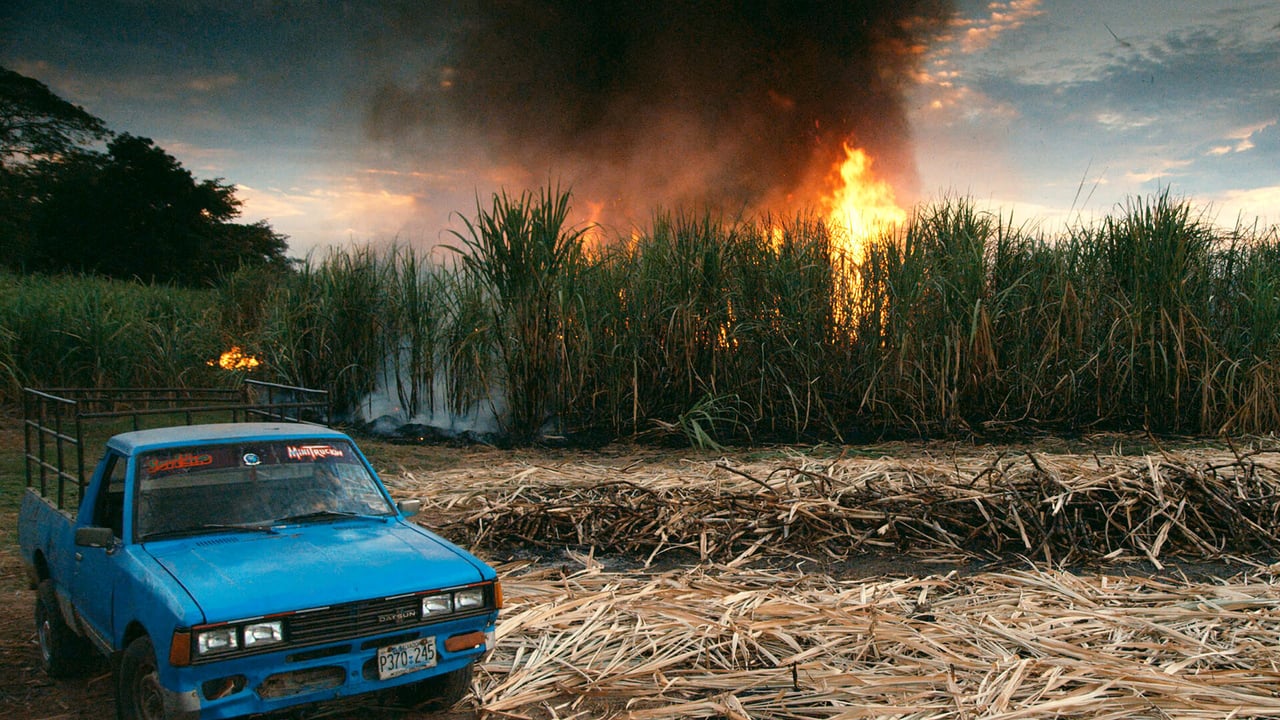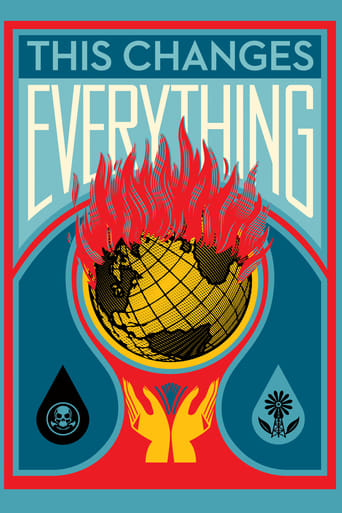Brightlyme
i know i wasted 90 mins of my life.
Brendon Jones
It’s fine. It's literally the definition of a fine movie. You’ve seen it before, you know every beat and outcome before the characters even do. Only question is how much escapism you’re looking for.
Winifred
The movie is made so realistic it has a lot of that WoW feeling at the right moments and never tooo over the top. the suspense is done so well and the emotion is felt. Very well put together with the music and all.
Billy Ollie
Through painfully honest and emotional moments, the movie becomes irresistibly relatable
LadiesAndMovies
I've always looked with some respect to Naomi Klein, although I've never read more than a couple of chapters here and there from her books. Given we don't really share a lot of political views (me not being a socialist nor fiercely anti-capitalism) I was looking forward to her take on this subject where I thought we'd have more common ground. The first 5 minutes or so of this movie really got my hopes up. Klein's smooth narrator voice explained how she doesn't really like environmental movies (me neither!), how seeing ice bears looking for ice doesn't really do it for her (a movie that criticizes some clichés, neat!) and in a crescendo she boldly proposes that everything we've thought to be the cause of the climate change is wrong! Then the actual movie begins and Klein's big twist turns out to be: capitalism is to blame. So not really a twist at all. And then we go on to learn... absolutely nothing new. The movie is entirely based on socialism vs. capitalism, which leaves little to no room for discussing facts or any deeper insights. Not a single scientist or researcher is interviewed. Instead a rather uninteresting conflict between a Canadian Native American tribe and the local authorities is given a large amount of time. I say uninteresting because the only part of the conflict we get to see are some awkward telephone conversations and a short conversation at a parking lot. To make it worse Klein introduces the tribe as THE alternative to the evil capitalism and the modern society. They know how to respect the earth and take care of it (hello biggest cliché ever....) and so on. Then the next shot shows one of them driving her enormous truck, which I presume is not run on solar power. A similar scene takes place in Greece where some environmentalists sit in a forest pouring some liquid or another from an old Coca-Cola (plastic) bottle from their (plastic) cups. Now don't get me wrong. I agree with Klein that marginalized people do suffer more. And I'm sure the Native American tribes and other activists shown are very much concerned with the environment. But by not addressing the discrepancy between how many people wish to save the environment and yet want to maintain a modern lifestyle (which includes cars and other modern consumption items), the movie leaves a gaping hole in the narrative of why the world looks like it does. All this focus on the little man (activists) versus capitalism also leaves very little room for examination of how societies should change. The movie goes to Germany as it's one and only role model for change, where, according to Klein, everything is now just perfect since they stopped using nuclear power (?!) (and now relies on sun and wind power. Firstly nuclear power has literally no carbon emissions, and is also a thousand times more efficient than wind or solar power. Secondly these alternative sources may supply 30% of all Germany's needs on the best of days, but the rest of the time Germany has to compensate with good old coal, which as seen previously in the movie, shouldn't really be something to keep around as a good energy source. Lastly I believe the thesis that environmental destruction began with the industrial revolution is severely dishonest. That is to deny all the iron mines, all the 'deforestification' and desertification (caused by agriculture), all the specie extinction etc that have previously existed due to human activities. For anyone interested in a less superficial understanding of the subject I'd recommend Jared Diamond's book "Collapse", in which he explains how different societies throughout histories have dealt with environmental destruction.
driscollx
My bias first. No question that humans are having a devastating effect on the environment, not just emitting way too much CO2. As a long time activist I am familiar with Naomi Klein's work, particularly her excellent "Shock Doctrine - the rise of Disaster Capitalism". I have not read her latest book which is the subject of this movie. The movie - despite some fairly inspiring stories - I found lengthy, repetitive, and missing a couple key points.The movie essentially proposes that local community action and control is the key to avoiding the escalating impact of climate change. While in theory this might be true, at least two of the examples cited don't bear this out. One is the case of Greece, in which mostly peaceful local opposition to the destruction of basically their entire way of life has been crushed by the EU and the IMF. As of Nov 2015 riots have not improved the situation.The second is the case of India, the 2nd most populous country on the planet and accelerating to 1st sometime around 2025. The issue here is that no matter how you plan to provide electricity to the vast majority of the population who don't have it, that plan will still have severe impacts on the environment as the ecological footprint of each person is magnified by huge population numbers.Forecast human population growth to 9.2 billion with increasing ecological footprint (including CO2 emissions) is pretty much guaranteed to tip the planet further into devastating ecological overshoot which is already happening and probably beyond control given the ingrained profit driven nature of capitalism (another key topic not really covered in the movie), corporate control, and sheer public apathy.
Nerd93
Few doubt the urgency of the environmental crisis facing the world today and you do get some sense of this from this documentary, but that's all that can really be said for it I think. As a film, it just is not very special at all, it is not something that stands out in any way whatsoever. It is often rather repetitive and takes quite a while to properly get to the point of the film, in this respect the book is certainly much better than the film. Also in terms of the solutions Klein proposes, they completely contradict how she positions herself politically. She makes herself out to be radical and anti-capitalist but she ultimately is just a social democrat and that really hurts this film. The film tries to impress upon you the urgency of the crisis and tries to illustrate to some degree how it is a result of the everyday functioning of capitalism but the social democratic solutions Klein proposes are disappointing politically and so also make the film disappointing. Worse still, I had almost forgotten that I even watched this film 24 hours later. Saying that for a film which has as its subject the environmental crisis we've created that could potentially threaten our existence as a species, is the worst thing you could really say.
lima-68963
This is indeed a quite powerful and moving film. The subject matter is undoubtedly serious, and as expected I found it undeniably somber at times. But none the less the overall tone to it is not only hopeful but I found it even upliftingly hopeful.This Changes Everything is a well made and well researched film. And although I do not normally give movie reviews, I consider this film the exception.This is an extremely important film for our time. Do not miss the opportunity to view it. This is not the time for hopelessness or complacency or business as usual. Action is called for and we can do it together! Please do yourself and your family a favor. The future of our children and our children's children is in our hands.

